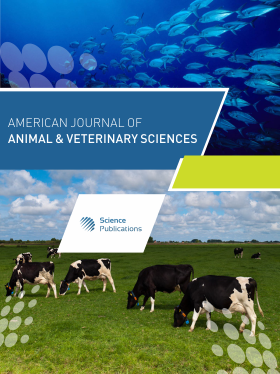The Use of Silver Vine (Actinidia Polygama Maxim, Family Actinidiaceae) as an Enrichment Aid for Felines: Issues and Prospects
- 1 Laboratory of Comparative Psychology and Behavioral Biology, United States
- 2 Oklahoma State University, United States
Abstract
Problem statement: This study highlights the potential of using silver vine as an enrichment additive for felines. Approach: A literature review was conducted on the use of silver vine since 1973. The articles were categorized into studies concerned with behavior, biological effects, beneficial uses, plant and chemical studies. Results: We found surprisingly few studies that utilized silver vine. There were only four studies concerned with the effect of silver vine on behavior and no behavior studies have been conducted since 1997. Only one study was found in the biological domain that explored the effects of silver vine on amygdala (which was thought to affect sexual behavior) by surgically removing the amygdala. No studies in the biological domain were found after 1979. In contrast to studies of biology and behavior, the literature contained sixteen articles on various aspects of plants with none published since 2008. Articles included studies on root pressure and shoot development, freezing temperatures and the cold-hardiness of the plant. Others explored the fruit of the plant and relationship with matatabi fruit gall midge, Pseudasphondylia matatabi that infected them. Eighteen articles on the beneficial uses of silver vine were found with none published since 2009 and twenty-two articles concerned with the chemistry of silver vine were found with two published since 2008. These articles concerned the organic chemistry of compounds found in the plant, as well as the chemistry that occurred when P. matatabi infected the fruit, which produced new chemical compounds in the plant. In conducting the literature review, we uncovered an error in the literature where silver vine was considered addictive to cats. We subsequently showed that no scientific data exists demonstrating any purported addictive properties of silver vine. The original conclusion that silver vine had addictive properties was based solely upon a single uncontrolled anecdote that, unfortunately, had been perpetuated in the literature to the present day. Conclusion: Behavioral research on silver vine as an aid to enrichment devices for felines is an unexplored area. Silver vine has much potential for use with enrichment devices and is very easy to use.
DOI: https://doi.org/10.3844/ajavsp.2012.21.27

- 8,815 Views
- 6,621 Downloads
- 14 Citations
Download
Keywords
- Silvervine
- matatabi
- cat
- leyhausen
